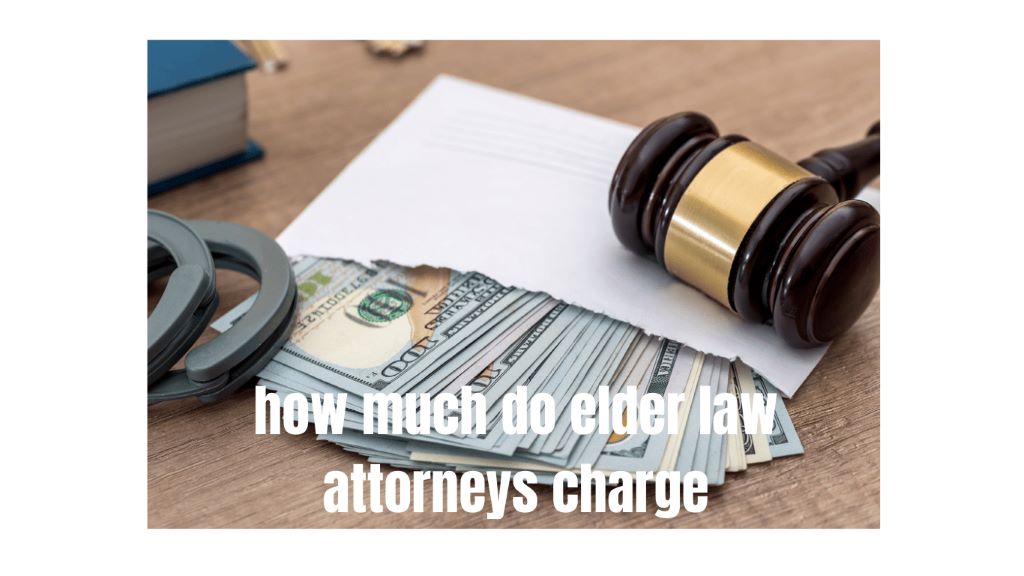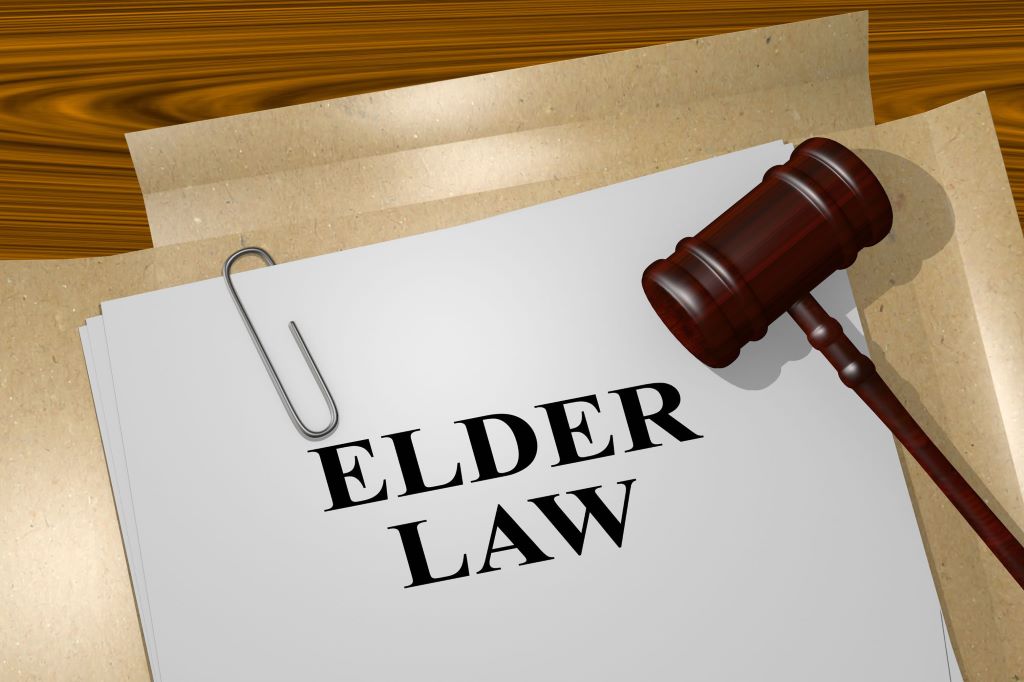
18 Dec How Much Do Elder Law Attorneys Charge?
As we get older, legal issues around estate planning, healthcare decisions, and financial matters become increasingly important. An elder law attorney can provide invaluable help navigating these complex areas. But before meeting with one, you probably want to know – how much do elder law attorneys charge? Read on for a comprehensive overview of elder law attorney fees and what goes into determining those costs.
The Basics of Elder Law Attorney Fees
Most elder law attorneys charge an hourly rate ranging from $200 to $500 per hour on average, depending on experience, location, and specialty. However, some may charge a flat project fee based on the expected scope of work. Basic services like drawing up wills, powers of attorney, and healthcare directives often have more standardized fees in the $500 to $1,500 range. More complex issues usually bill by the hour.

What Impacts Elder Law Attorney Hourly Rates?
Several key factors account for variances in attorney hourly rates:
Experience Level
A brand new elder law attorney may charge around $150 to $200 per hour, while a senior partner at a prestigious firm frequently bills $400 to $500. The more years an attorney has specialized in elder law, the higher rates generally become.
Location
Attorneys practicing in major metropolitan areas like New York City and Los Angeles often set higher rates, given the costs of running offices there. Average fees in smaller towns or rural locations sit on the lower end.
Specialization
Elder law covers many nuanced financial and healthcare related legal issues. Attorneys with particular expertise in complex Medicare claims, guardianship disputes, or special needs trusts may bill at above-average rates compared to peers in the same location.
Firm Size
Larger firms tend to set higher hourly fees than solo practitioners or small partnerships, incorporating substantial operational expenses into their rates. However, these larger firms sometimes offer more breadth of legal services under one roof.
What Does an Elder Law Attorney’s Hourly Rate Include?
When you look at an attorney’s hourly rate, it helps to understand everything covered in that charge. Unlike some other professional services, legal fees include more than just time spent meeting with clients or directly working on cases. Here are some of the typical things bundled into an attorney’s hourly rate:
– Consultations and meetings with clients
– Drafting legal documents, forms, letters, and filings
– Making and receiving phone calls related to a case
– Case-related travel time
– Legal research and analysis
– Preparing for court appearances and other meetings
– Complying with filing deadlines
– General case administration and organization
The hourly rate also covers a portion of the law firm’s overhead costs – things like employee salaries, software subscriptions, office space rent and amenities, utilities, marketing, insurance, and professional association dues. So while $400 per hour may seem high at first glance, a great deal goes into allowing an attorney to provide specialized legal services.
Average Costs of Common Elder Law Services
While hourly rates give a sense of attorney fees, most clients ultimately care more about total costs for specific matters. Here are typical price ranges for some common legal issues facing older adults and their families:
– Basic will package (will, healthcare proxy, power of attorney): $500 – $1,500
– Complex or contested wills/trusts: $5,000 – $10,000+
– Estate administration (probate after a death): $3,000 – $7,000+
– Healthcare/Medicaid planning: $2,000 – $5,000+
– Guardianship establishment: $3,000 – $5,000+
– Elder abuse case: $3,000 – $7,000+
– Medicare appeals case: $2,000 – $4,000
The actual fees depend heavily on the unique circumstances of each matter. For example, if fairly straightforward, a Medicaid planning case could run less than $2,000. But the same matter could exceed $10,000 if assets need protection from long-term care expenses through complex trusts or asset transfers. An initial consultation allows attorneys to estimate specific costs based on a senior’s total financial picture.
Key Variables Impacting Overall Elder Law Fees
While the hourly rate serves as the foundation for attorney costs, several other variables also affect the total bill for elder law services:
Case Complexity
Simpler legal matters require less time and fewer billable hours than intricate issues, keeping overall costs lower. For example, an uncontested living will with basic terms generally costs less than extensive estate planning with tax considerations.
Number of Services
Obtaining help on multiple fronts – like a will, healthcare proxy, power of attorney, and Medicaid application – means combining several fees. Whether handled by one attorney or through referrals to specialists, more legal services equal higher costs.
Court or Administrative Hearings
If a guardianship, estate matter, or healthcare dispute winds up needing court or administrative hearings, extra attorney time leads to more billable hours and expenses. Contested issues drive up overall costs.
Geography and Travel
For attorneys located hours away from elderly clients, travel time and mileage expenses may show up on invoices if home or care facility visits become necessary. Local attorneys eliminate these costs.
Taxes
Some attorneys include sales tax on top of their fees if required in their jurisdiction. States like California add thousands more to total bills thanks to high tax rates.
Disbursements
From postage and courier fees to charges for medical record copies or court filings, attorneys often bill clients for case-related expenses beyond the hourly fees. These disbursements should be outlined in a representation agreement.

Payment Options for Managing Elder Law Attorney Costs
Attorney fees quickly become costly for extended litigation or hours of legal work. Fortunately, elder law specialists offer multiple arrangements for diffusing the financial impact over time:
Payment Plans
Law firms may spread costs over several months through monthly billing rather than issuing a single large invoice. This prevents the shock of a huge lump sum bill.
Installment Schedules
Some attorneys allow clients to pre-pay a block of hours at a discounted rate to be drawn down incrementally over an agreed timeframe. Unused hours may receive a refund.
Retainers
Clients provide an upfront deposit, which attorneys hold in trust and apply against future work. Once used up, an additional retainer replenishes funds accessible for ongoing costs.
Insurance
A handful of insurance offerings, like legal expense plans and elder care policies, contain limited benefits for attorney fees. Policies vary widely in coverage, though.
How Elder Law Attorneys Bill for Common Scenarios
Understanding how attorneys apply hourly rates and assess costs provides more transparency into potential fees. Here are billing examples for three typical elder law needs:
1. Basic Estate Planning Package
An attorney meets with a married couple in their 60s for 90 minutes to scope out an estate plan before death. She then prepares standard wills, healthcare proxies, power of attorney forms and an overall asset distribution memo reflecting their requested terms. She bills 6 hours at her $250 hourly rate for a total of $1,500.
2. Guardianship Filing
A man in his 80s showing memory problems requires a guardianship case for his daughter to manage legal and financial matters. His attorney spends 2 hours meeting with his daughter, 3 hours meeting with him to assess capacity and wishes, 4 hours gathering medical records and financial statements, and 6 hours preparing emergency temporary guardianship pleadings for court. At $300 per hour, the total 15 billable hours equals $4,500.
3. Medicaid Asset Protection Case
An elderly couple seeks to shield savings from nursing home expenses anticipating long term care needs. Their elder law attorney firstly spends 5 hours reviewing their finances and analyzing Medicaid gifting rules specific to their state. She then dedicates 10 hours to establishing and funding an Irrevocable Income-Only Trust solution for allocating their assets. Charging a discounted rate of $275 per hour, her 15 hours generates a $4,125 total fee.
Questions to Ask When Evaluating Attorney Fees
If quoted what feels like steep attorney rates or tallied costs, ask these key questions to better evaluate overall value:
– Do your rates match peers with similar experience in this area?
– What specific legal and administrative tasks will you handle vs. delegating?
– How can we structure payment to align with my budget and cashflow?
– Are there any alternative billing arrangements you offer?
– What proactive steps do you take to minimize hours and costs?
– Can you provide examples of similar client cases and total fees?
– What overhead expenses are covered within your rates?
By better understanding both the market pricing and exact services provided for the rates, you can determine whether the attorney fees deliver reasonable value.
Top Tips for Lowering Your Elder Law Attorney Costs
While attorney rates remain largely fixed at competitive market prices, clients can implement strategies to control hours and total fees. Consider these tips for minimizing legal expenses:
Streamline Services
Handle as many routine documents (basic wills, basic healthcare power of attorneys) through lower-cost online legal software when allowable in your state. Then consult attorneys mainly for specialized and complex matters.
Come Prepared
Organize financial statements, relevant medical records, and other key paperwork ahead of time rather than billing for an attorney’s document collection and review time. Clearly communicating goals also minimizes back and forth.
Involve Family Sparingly
While input from children or other family members often proves crucial, limiting attended meetings and calls to essential parties scales back hours spent getting everyone up to speed.
Ask About Paralegals
Some non-court related paperwork and administrative tasks may qualify for delegation to lower-cost paralegals at the firm rather than utilizing attorney time.
Compare Multiple Attorneys
Shopping around town and clarifying precisely which services differ can reveal more competitively priced counsel for routine matters like basic wills and healthcare proxies.
Consider DIY Options
Self-guiding on simpler legal steps through reputable online tools creates affordable DIY alternatives for basic estate planning documents or Medicare appeals letters. Consult attorneys later if complications arise.
Apply for Aid Programs
Those meeting income thresholds may access pro bono assistance through bar associations or legal aid societies drastically reducing out of pocket costs.
Consider Insurance
While not a panacea for all costs, long term care insurance or legal expense plans offer another choice for offsetting some attorney fees depending on policy limitations.
FAQs
How much does the average elder law attorney cost?
Average attorney fees range from about $200 to $500+ per hour depending on experience, location, firm size, and specialty. Simple matters generally tally $500 to $1,500 while complex issues often exceed $5,000+.
What services do elder law attorneys provide?
Common services include wills, trusts, estate planning, powers of attorney, healthcare proxies, Medicaid applications, guardianships, elder abuse cases, Medicare appeals, special needs planning and general legal advice for seniors.
When working with an elder law attorney, what can increase costs?
Extended court battles, legal filings, additional government paperwork, extensive assets requiring management through legal vehicles, extra family member disagreements, attorney travel time and contested guardianship matters all increase billable time and expenses.
How much do elder law attorneys typically charge for basic wills?
Average costs for basic wills fall between $500 to $1,500 depending on complexity. High net worth estate planning with extensive tax considerations runs $5,000 and above.
Can I negotiate costs with an elder law attorney?
Yes, particularly for routine documents or asset transfers. Asking about fee caps, payment plans, or discounted rates for bundled services may result in lowered quotes. Comparison shop between multiple attorneys for leveraging negotiation power.
Key Takeaways
Thanks to the range of specialized services elder law attorneys provide – from estate planning and Medicaid advice to guardianship and elder abuse assistance – their hourly rates and total costs generally remain higher than typical lawyers. But they also possess unique legal skills to serve and protect aging clients. When seeking a good car accident lawyer, understanding exactly what goes into these attorney fees is crucial for evaluating the overall value based on your needs and budget constraints; implementing several basic cost control habits also keeps elder law legal help affordable long-term.


No Comments